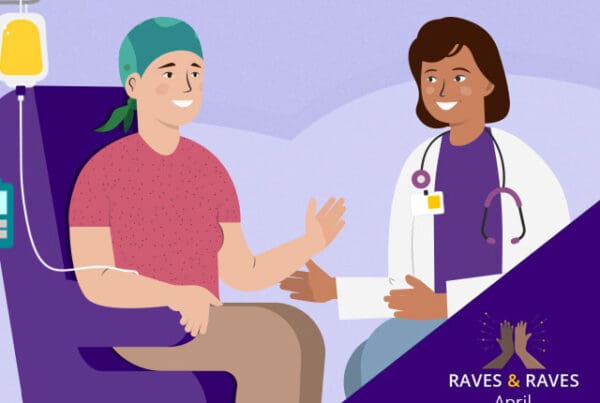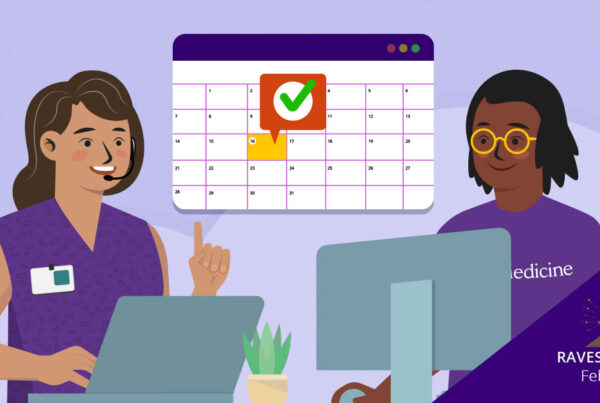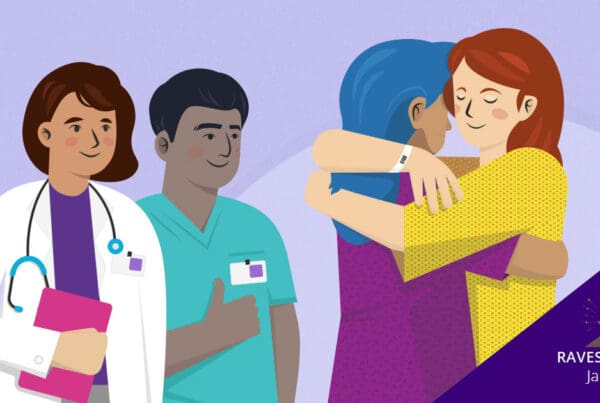Highlights | A year in review
- The Peer to Peer program launched in January 2020 providing formalized access to peer support.
- Within the first year there were 475 total referrals for peer support.
- Clinical healthcare workers across the system — from staff to trainees — used the program.
- The top reason for requesting peer support was stress and anxiety.
- Need peer support? Fill out the intake form.
In January 2020, the Peer to Peer program launched, providing employees with formalized access to trained peer supporters. This program was created as a step forward in developing a culture of well-being at UW Medicine and addressing burnout and emotional fatigue among healthcare workers.
Here’s a look at the impact of the program during its first year.
Launching the program
From November 2019 to January 2020, the program held three training sessions for peer supporters before the program’s launch.
“We trained 130 individuals to be peer supporters, which was way more than we expected to see,” says faculty peer support coordinator Sam Sharar, MD, pediatric anesthesiologist at Harborview Medical Center and professor of Anesthesiology and Pain Medicine at UW School of Medicine. “It was amazing to see the commitment they had to being part of the program and the number of folks that took advantage of the program during its first year.”
Peer support coordinator Marie Cockerham, MN, RN, CCRN, support specialist at UW Medical Center and program director for CARE4U, says that on the first day the Peer to Peer program received five referrals — five more than expected.
“Since then, the program has been well utilized and accepted,” says Cockerham.
Who received support?
Through the Peer to Peer program, care team members can request support for themselves or a colleague through an online portal. Between January 2020 and December 2020, there were 475 program encounters that were documented in a deidentified database, including 321 formal referrals and 154 informal encounters across nine UW Medicine sites.
Cockerham and Sharar note that there were probably many more informal encounters — interactions that happened organically outside the online portal — that didn’t go through the same process of deidentified documentation.
The majority of participants were staff (69%), followed by faculty (20%), trainees (7%) and other nonidentified roles (4%).
The most engaged roles included:
- Registered nurses
- Physicians
- Managers
- Patient service specialists
- Patient care technicians
- Assistant managers
- Advanced registered nurse practitioners
- Medical assistants
- Respiratory therapists
- Social workers
“The bulk of ways we get referrals is colleague referrals,” says Cockerham. “We’ve seen that number grow in the way leadership uses this program — as a way for leaders to take care of their teams and prioritize the well-being of their staff.”
Top reasons for peer support
Peer supporters are trained to be supportive, nonjudgmental and confidential listeners. They have “been there” and have experienced similar work and life challenges.
“In many of the encounters that I had, folks said, ‘Thank you for the opportunity and outlet to just listen to my problems — I know you can’t solve them, but it feels better just to talk about it,’” says Sharar.
The top reasons for peer support in 2020 included:
- Stress/anxiety
- Emotional distress
- Death of a patient
- COVID-19 support
- Patient adverse event
- Burnout
- Disruptive patient
“Many peer encounters had to do with the difficult reality of trying to integrate work expectations into their own work-life balance,” says Sharar. “Especially during COVID-19 when there are so many fears and uncertainties.”
Celebrating successes
The program helped to put in place structures and relationships that made it easier to provide well-being and support during the pandemic. Cockerham calls the timing “kismet.”
“Any type of support that grew during the pandemic grew from us putting the peer support program in place. We had these amazing, trained supporters who’ve done an incredible job and we have these relationships that we built across the system,” says Cockerham. “Those relationships were really powerful in ramping up support during the pandemic.”
Another success of the program that Cockerham highlights was being able to connect employees to resources that they may not have otherwise explored if it wasn’t for a successful peer support interaction.
“Our peer supporters are really well-versed in all the different types of support we have in the organization and in the community,” she says. “Connecting on a peer level can make it more helpful to accept ongoing support.”
On a more personal level, Sharar says it’s been a privilege to be a peer supporter.
“The satisfaction of being a peer supporter is tremendous, and it has broadened the view of my world — how I can be a better father, husband, doctor and person,” says Sharar.
Continuing a culture of care
This program represents an important step toward developing a culture of well-being for everyone at UW Medicine.
In 2021 and beyond, the program has goals to expand access across the UW Medicine system and integrate the program into our organization’s COVID-19 recovery model.
“One of our hopes is to expand to nonclinical staff that don’t work in the hospital,” says Sharar. “Everyone is stressed and anxious during COVID-19 with work demands and we would like to offer the same resources to those nonclinical employees.”
From the feedback and learning of the first year, the program will also work to streamline peer support referrals after adverse events, launch triggers for peer support in the patient safety network and increase deidentified documentation for informal peer support encounters.
Growing peer supporters’ skillsets is also a top priority in helping build a culture of continuous support between colleagues.
“It’s just been so amazing to see peer supporters grow so much through the pandemic. They all just embraced their roles and it’s wonderful to see them engage and connect,” says Cockerham. “Peer supporters say this role gives them more resiliency to do their work, to lead with more empathy and to find compassion more easily.”
Accessing Peer to Peer resources
“You aren’t alone,” says Cockerham. “There are ways to reach out for help and so many people willing to help if you are feeling any type of distress or discomfort as you go through the challenges of working in healthcare.”
Request help from a peer supporter for yourself or a colleague by filling out this intake form.
Interested in becoming a peer supporter? Find out more at faculty.uwmedicine.org/p2p/.


